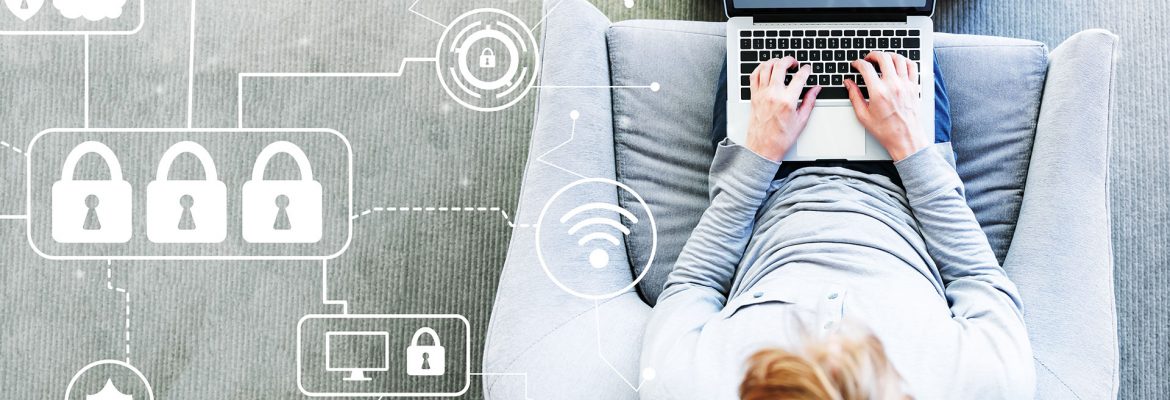Cybercrime is on the rise and has been for a few years now. According to ITgovernance.com, there were 1,243 security incidents, which accounted for 5,126,930,507 breached records.
Information Security Starts with the Average Person
Our lives now and in the past have involved the internet. It affects the way we work, shop, and communicate. Like the actual world, there are still risks in the online realm. Since a few years ago, cybercrime has increased. 5,126,930,507 records were compromised as a result of 1,243 security incidents, according to ITgovernance.com. In comparison to 2020, there has been an 11% increase in cyberattacks. Frequently, when we discuss cybersecurity and cybercrime, we immediately think of government-level operations that demand this level of security. Examples include schools, hospitals, government organizations, the military, etc.
However, cybersecurity is accessible to all people and useful in daily life as well. In this essay, we’ll talk about a few typical assault kinds and how you can guard against them in daily life. A cyberattack is what? When an attacker, sometimes known as a hacker, attempts to obtain unauthorized access to a system, it is called a cyberattack. These are the most typical types of cyberattacks, while there are innumerable others.
Malware
Malicious software, also referred to as malware, is intrusive software. It is intended to harm if not completely destroy, computer systems. In essence, malware is any intrusive program created by online criminals. Malware comes in the form of viruses, worms, spyware, and ransomware.
Viruses
A subset of malware are viruses. Malicious software that is attached to a file or document is a virus. Once the infection is downloaded, the software can start functioning. They are made to interfere with a system’s capacity to function effectively.
Malware
Malicious malware called worms spreads swiftly across all devices and copies itself. Before it spreads, a worm infects a device via a download file or a network connection.
Spyware
Unlike viruses or worms, spyware operates covertly on a computer and transmits information to a remote user. Spyware deliberately targets private data and gives predators access. By doing so, they can obtain passwords or steal financial and personal information.
Ransomware
When ransomware accesses private data on a computer, it blocks the user from accessing it until the ransom is paid. Phishing fraud frequently includes ransomware. The data is unlocked after the attacker gets the payment. Even after payment, not all of the data is occasionally returned.
In 2021, a ransomware attack targeted The Colonial Pipeline, a firm that transports approximately 50% of the gasoline used on the East Coast of the United States. Due to a weak password, this breach brought down the main fuel pipeline in the United States and caused shortages along the East Coast. The password was discovered on the dark web, indicating that the employee may have used it for a compromised account in the past. A ransom message requesting large amounts of cryptocurrency showed up a week later. The pipeline was then totally shut down. All of this for the readily avoidable compromise of a single password.
Phishing
When an attacker tries to deceive an unwary target into divulging important information like passwords, credit card numbers, etc., this is known as a phishing attack. Attacks by phishers frequently take the form of emails. These emails will impersonate a reliable unit, like your bank, to trick you into opening them.
A man by the name of Benjamin was a victim of a phishing scam in February 2022. Benjamin made an attempt to deposit a $300,000 cheque at an Indianapolis Regions bank. The check, however, was found to have been fraudulently obtained through a phishing attempt that was directed at two Louisiana-based businesses. By pretending to be a representative from one of the companies via email, Benjamin persuaded the company to deliver a 300K check. He tried to deposit the cheque, but it was flagged as fraudulent, so he was taken to jail. 300K was still affected, though.
Your information may be compromised by anything as simple as clicking on the incorrect link, downloading the incorrect file, or simply using the incorrect password. Because of a straightforward hack into their systems, businesses wind up having to pay astronomical fines or possibly go out of business. Cyberattacks can be avoided, though, if you take certain precautions.
Your information may be compromised by anything as simple as clicking on the incorrect link, downloading the incorrect file, or simply using the incorrect password.
What Can You Do?
Keep your software updated
Microsoft and Apple often release updates for their systems, and it is a good idea to keep up with these updates because they can include patches in security.
Think twice about clicking links or downloading anything
You should exercise the same caution when entering an old, abandoned building that is dark and has a sign outside that reads, “Free Puppies!” in the real world as you would online. The best places to fall victim to phishing schemes are unfamiliar websites, emails, or video programs. Before tackling the uncharted, look out for reviews or further information as a wonderful method to guard against these scams. Using caution when opening unfamiliar email attachments or photos is another example of this.
Don’t trust pop-up windows that ask you to download software
You can encounter pop-ups when browsing the internet that ask you to download software or that say your computer has a virus. Don’t click inside the pop-up windows; instead, close them. It will safeguard you.
Apply common sense.
Finally, always exercise caution. Many cyberattacks and data breaches can be avoided by using stronger passwords, staying away from random links, ignoring pop-up windows, etc. Preventable assaults are far more frequent than complicated, unpreventable attacks. Learn about the various attack kinds, then utilize these protection strategies to keep yourself safe. Protect yourself and those you care about by using cybersecurity in daily life.

